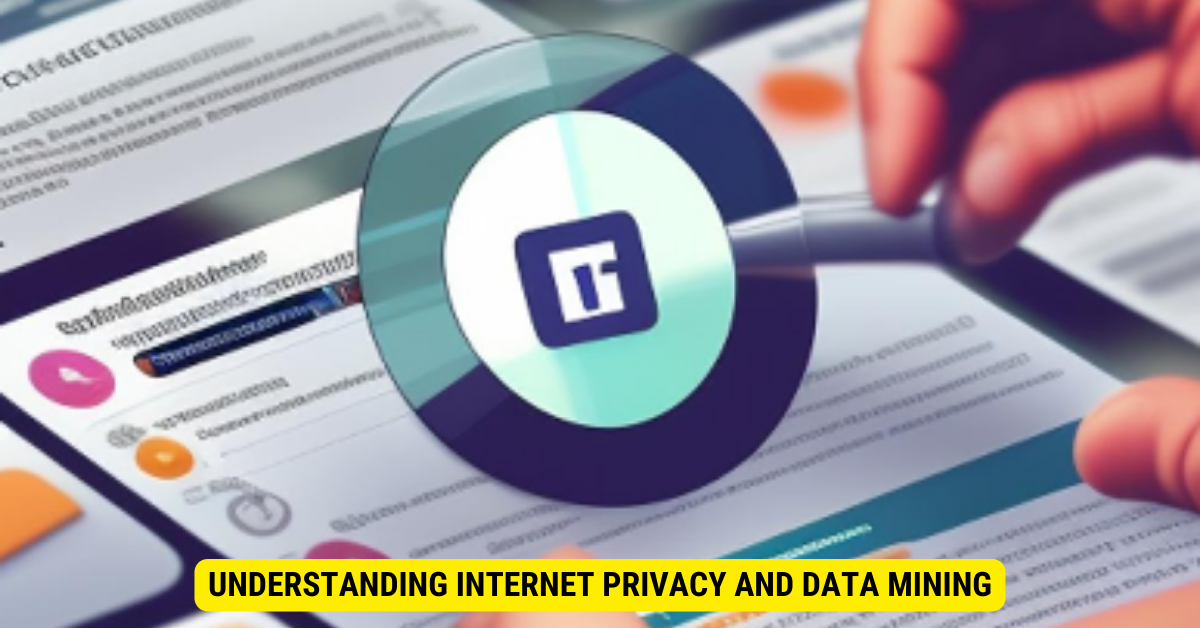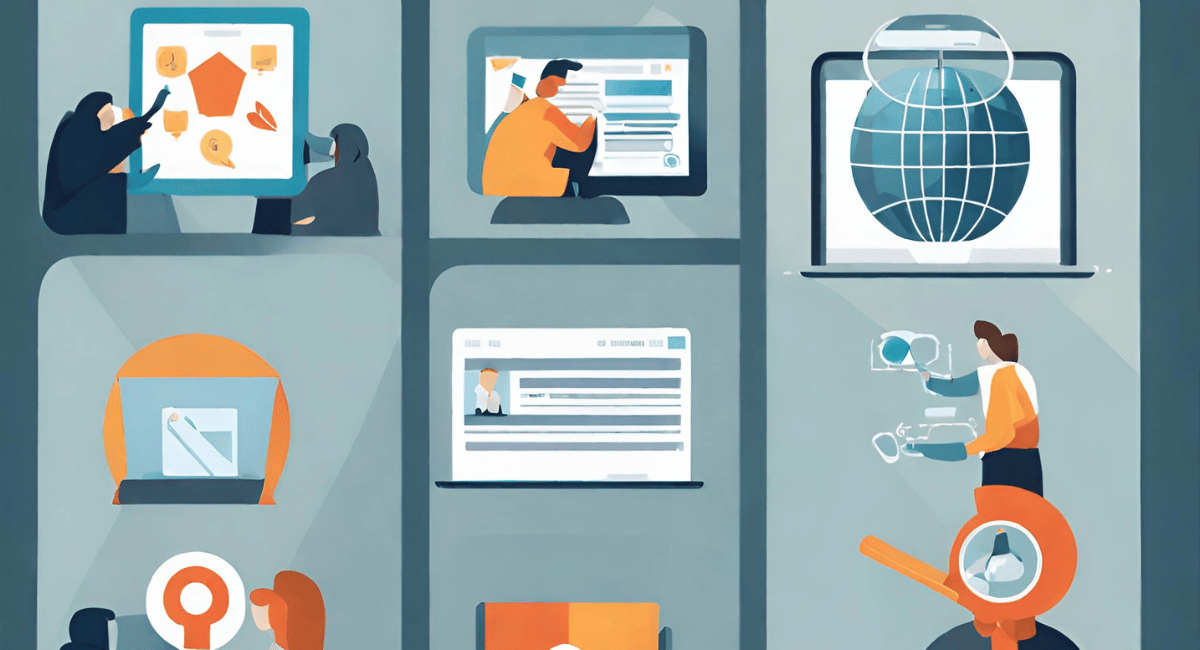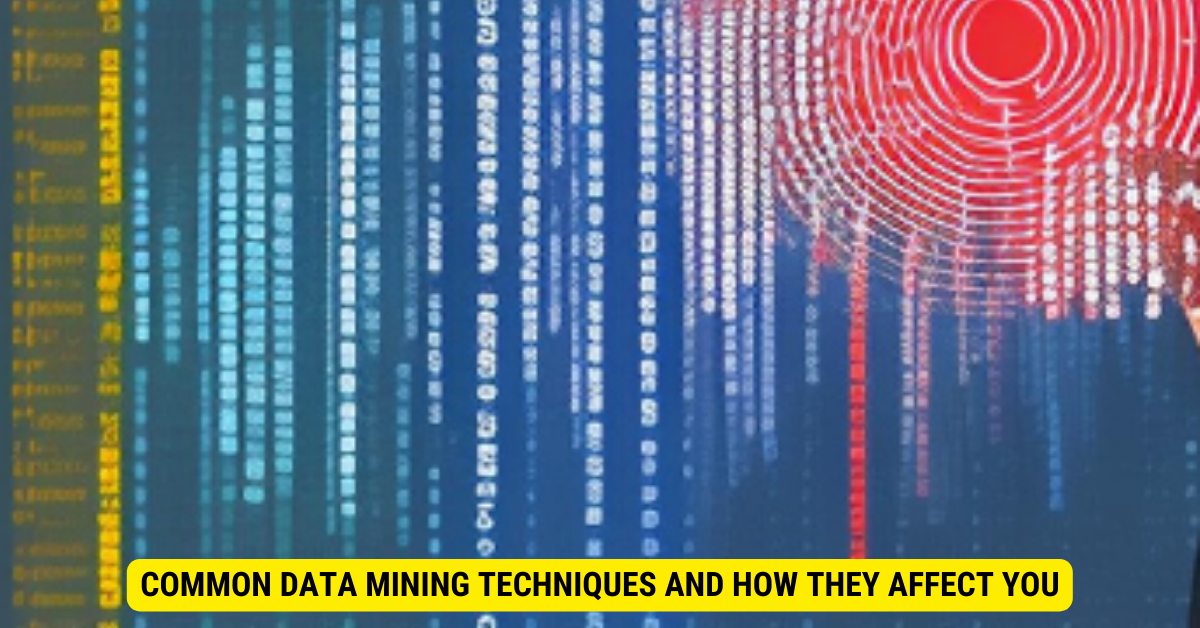To protect your internet privacy from data mining, use encryption tools, utilize virtual private networks (VPNs), regularly clear cookies and browsing history, and avoid sharing unnecessary personal information online.
Protecting your internet privacy has become a critical concern in today’s digital age. With the prevalence of data mining techniques, it is vital to know the risks involved and take proactive measures to safeguard your personal information. I will aim to provide a comprehensive guide on protecting your internet privacy from data mining threats.
Understanding Internet Privacy and Data Mining

Before we delve into the methods of protecting your internet privacy, let’s start by defining what internet privacy entails. Internet privacy refers to individuals’ rights to control the online collection, use, and dissemination of their personal information.
Internet privacy encompasses various aspects, including the confidentiality of personal data, the right to control how personal information is collected and used, and the ability to remain anonymous while browsing the web.
When discussing internet privacy, it is important to consider the different types of personal information that can be collected online. This contains your name, address, phone number, email address, social media activity, browsing history, and online purchases. This data can be valuable to companies and organizations for various purposes, such as targeted advertising, market research, and surveillance.
Defining Internet Privacy

Internet privacy is a fundamental aspect of our digital lives. It is about controlling our personal information and making informed decisions about how it is collected, used, and shared. With increasing data generated and shared online, protecting our privacy has become more challenging than ever.
One of the key components of Internet privacy is the confidentiality of personal data. Your personal information should be kept secure and protected from unauthorized access. Organizations must implement strong security measures, such as encoding and firewalls, to safeguard sensitive data and prevent data breaches.
In addition to confidentiality, internet privacy involves the right to control how personal information is collected and used. This means that individuals should be able to choose what information they want to share and with whom. It is important for websites and online services to offer clear and transparent privacy policies, informing users about the data types and how they will be used.
Furthermore, internet privacy includes remaining anonymous while browsing the web. This means that individuals should be able to browse websites without revealing their identities. Tools such as virtual private networks (VPNs) and anonymous browsing modes can help protect your anonymity and stop your online activities from being tracked.
What is Data Mining?
Data mining analyzes large datasets to discover patterns, relationships, and trends. It involves extracting valuable information from vast amounts of data, often including personal and sensitive details. Data mining techniques can be used for various purposes, such as market investigation, fraud detection, and recommendation systems.
With the advent of big data, data mining has become an essential tool for businesses and organizations to gain insights and make knowledgeable decisions. Companies can identify consumer trends, predict customer behavior, and optimize their marketing strategies by analyzing massive amounts of data.
However, the widespread use of data mining has raised concerns about privacy and ethics. The vast amount of personal information being collected and analyzed raises questions about this data’s potential misuse and abuse. Organizations must handle personal data responsibly and respect individuals’ privacy rights.
Moreover, data mining techniques can also be used for surveillance purposes, raising concerns about government surveillance and invasion of privacy. Collecting and analyzing personal data on a large scale can have far-reaching implications for civil liberties and individual freedoms.
As individuals, it is important to be aware of the data mining practices employed by companies and organizations. Reading privacy policies, understanding data collection practices, and using privacy-enhancing tools can help protect your personal information and maintain your privacy in the digital age.
The Importance of Protecting Your Internet Privacy
Protecting your internet privacy is vital due to the significant risks of leaving your personal information accessible to data mining activities.
With the rapid advancement of technology and the growing confidence in the internet for various aspects of our lives, prioritizing protecting our online privacy has become more crucial than ever. In today’s digital age, where personal information is constantly being collected, stored, and shared, the potential risks of leaving our data unprotected cannot be ignored.
Risks of Unprotected Internet Use
Your data can be vulnerable to unauthorized access without proper protection, leading to various privacy breaches. Inadequate internet privacy measures may expose you to identity theft, financial fraud, and unwarranted surveillance.
Identity theft is a thoughtful concern in the digital world. Cybercriminals can exploit unprotected personal information to assume someone’s identity, potentially causing significant financial and emotional damage. From opening credit accounts in your name to making unauthorized purchases, the consequences of identity theft can be devastating.
Financial fraud is another risk associated with unprotected internet use. Hackers and defrauders can gain access to your monetary information, such as credit card details or bank account numbers, and use them for fraudulent activities. This can result in unauthorized transactions, drained bank accounts, and a long and arduous process of recovering your lost funds.
Unwarranted surveillance is a growing concern in today’s society. Governments, corporations, and even individuals can monitor your online activities without your knowledge or consent. This invasion of privacy can have far-reaching consequences, including the potential for blackmail, discrimination, or manipulation.
The Value of Your Data
Your data holds immense value in the digital realm. Companies and organizations often collect and analyze this data to tailor marketing campaigns, create targeted advertisements, and generate consumer insights. By safeguarding your internet privacy, you retain control over how your data is utilized.
When you protect your internet privacy, you stand against commodifying personal information. Keeping your data private prevents it from being exploited for profit without your consent. You have the right to decide who can access your personal information and how it is used.
Furthermore, protecting your internet privacy helps preserve your online reputation. In today’s interconnected world, your digital footprint significantly shapes how others observe you. By safeguarding your data, you reduce the risk of using it against you, whether in targeted advertisements, online harassment, or reputational damage.
In conclusion, protecting your internet privacy is not just about safeguarding your personal information; it is about asserting your rights and maintaining control over your digital life. By understanding the risks associated with unprotected internet use and valuing the importance of your data, you can take proactive steps to protect yourself and ensure a safer online experience.
Common Data Mining Techniques and How They Affect You

Data mining techniques continually evolve, allowing for increasingly sophisticated methods of extracting personal information from online activities. Understanding these techniques is crucial for comprehending the extent of the potential threats to your internet privacy.
Cookie Tracking
Cookie tracking is a prevalent data mining technique that involves storing small text files on your computer while visiting websites. These cookies track your browsing behavior, allowing websites to personalize content and advertisers to target you with specific ads.
Browser Fingerprinting
Browser fingerprinting is a method used to identify and track users based on unique attributes or configurations of their web browsers. Advertisers can create a unique fingerprint of your device by collecting information such as installed plugins, screen resolution, and font preferences.
Practical Steps to Protect Your Internet Privacy
Fortunately, you can take several practical measures to protect your internet privacy from data mining threats. By implementing these steps, you can significantly enhance your online privacy and reduce the risks associated with data mining.
Using Virtual Private Networks (VPNs)
One effective method of safeguarding your internet privacy is using Virtual Private Networks (VPNs). A VPN encrypts your internet connection, creating a secure and private network between your device and the internet. This encryption prevents data mining and other malicious activities from intercepting and accessing your personal information.
Browser Settings and Private Browsing
Adjusting your browser settings and utilizing private browsing modes can also contribute to protecting your internet privacy. Turning off third-party cookies, blocking pop-ups, and regularly clearing your browsing history and cache can help minimize data collection and tracking.
Advanced Methods for Internet Privacy Protection
For those seeking additional layers of security, advanced methods are available to safeguard your internet privacy further.
Encryption and Secure Communication
Encrypting your online communication is key to ensuring its confidentiality. Use encrypted messaging apps and secure email services that employ end-to-end encryption to protect sensitive information from data mining efforts.
Anonymous Browsing and Tor
Anonymous browsing can be achieved using tools like Tor (The Onion Router). Tor routes your internet connection through a network of volunteer-operated servers, making it difficult for data mining activities to track and trace your online activities back to you.
Key Takeaways
- Use VPNs to mask your IP address and encrypt data.
- Regularly clear cookies and browsing history.
- Utilize browser plugins that block trackers.
- Be cautious about sharing personal information online.
- Regulate privacy settings on social media and other platforms.
FAQs
Q: What is a VPN?
A: A VPN, or Virtual Private Network, encrypts your internet connection and hides your IP address, enhancing privacy.
Q: How do cookies affect my privacy?
A: Cookies store user data and preferences, which can be used to track and profile user behavior.
Q: Are there browsers designed for privacy?
A: Browsers like Tor and Brave prioritize user privacy and limit tracking.
Q: What are some recommended plugins for privacy?
A: Plugins like Ghostery, uBlock Origin, and Privacy Badger can help block trackers and enhance privacy.
Q: How can I recognize phishing attempts?
A: Look for suspicious URLs, unexpected emails, and requests for personal information.
Conclusion
In conclusion, protecting your internet privacy from data mining threats is paramount in today’s digital landscape. By understanding the risks involved, implementing practical measures, and leveraging advanced methods, you can secure your personal information and control your online privacy.
